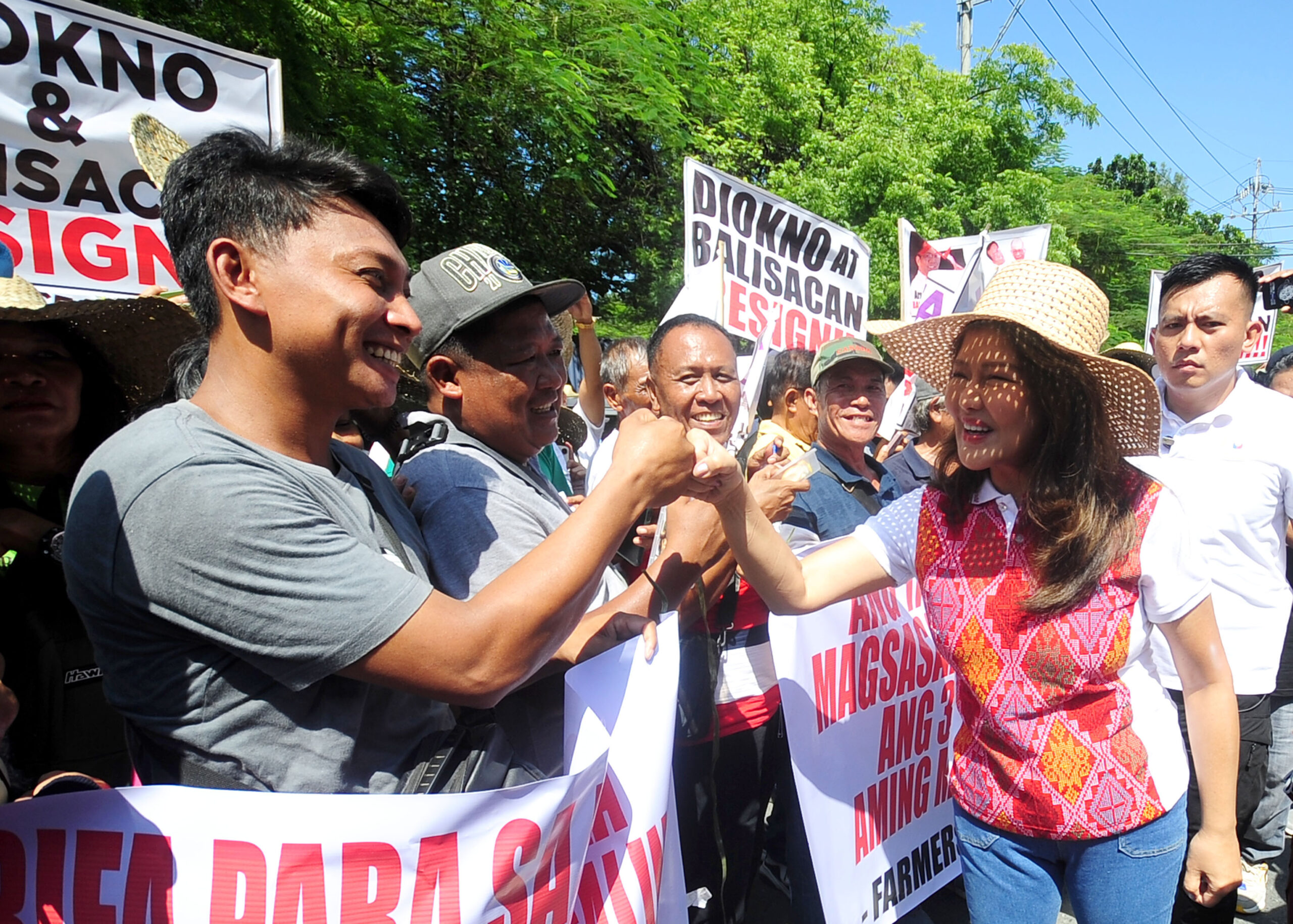President Ferdinand Marcos Jr. on Tuesday rejected the proposed tariff reduction on imported rice being pushed by his economic managers.
“We decided with the agriculture and economic managers that it was not the right time to lower the tariff rates because the projection of world rice prices is that it will go down. So, this is not the right time to lower tariffs. Tariffs are generally lowered when the price is going up,” he said.
His made the announcement shortly after a sectoral meeting in Malacañang on Tuesday where the National Economic and Development Authority (NEDA) presented updates on the proposed tariff reduction.
Earlier in the day, Senator Imee Marcos joined rallyists opposing the proposed zero tariff on imported rice as she expressed confidence that her brother would not allow the importation of the staple amid the start of the harvest season this week.

“All my peers are here. Our farmer-friends, fisherfolks – all those who came from Northern Luzon up to Central Luzon and Southern Luzon are here. I am just supporting them,” the senator said.
The group of rallyists, led by the Samahang Industriya ng Agrikultura (SINAG), also called for the resignation of Finance Secretary Benjamin Diokno and NEDA Secretary Arsenio Balisacan for proposing the temporary reduction of rice import tariffs to help reduce prices.
“I’m sure President Marcos will not allow it. What’s scary is we know that Congress will adjourn tomorrow. If the Congress and the Senate adjourn, what’s scary is if someone will allow the reduction or zero tariff importation amid the harvest season,” Marcos said.
“That’s too much already. Everyone is harvesting. Farms are about to start and its peak is at the end of this month, this week, until October,” she added.
Previously, Balisacan said reducing the tariff on imported rice was an option to bring down prices and ensure stable supply.
During yesterday’s meeting, however, Balisacan and Agriculture Undersecretaries Leocadio Sebastian and Mercedita Sombilla agreed it was not the right time to lower tariff rates because of the downtrend of rice prices in the world market.
On September 5, Executive Order No. 39 was implemented, setting the mandated price ceiling on regular rice and well-milled rice at P41 per kilo and P45 per kilo, respectively.
Asked if the government will lift the price cap, the President said it will remain in effect as they have to study the matter carefully.
“Let’s study [the lifting of EO 39] carefully,” Mr. Marcos said.
On Monday, Senator Risa Hontiveros said revenues from rice tariff should be used to fund a cash assistance program for Filipino households.
“We have an opportunity here to collect and employ these rice import tariffs to provide much-needed cash assistance to millions of Filipino households,” she said.

With P12 billion in projected revenues, for example, the senator said the government could extend assistance to an additional six million families on top of the 4 million families enrolled under the 4Ps program and who are already receiving rice allowances.
“Utilizing rice import tariffs offers a win-win solution for consumers and the agricultural sector,” she said.
“This will not only benefit Filipino families but also promote a sustainable, balanced rice market in the long term,” Hontiveros added.
Contrary to the Department of Finance’s stance that lower tariffs would guarantee affordable rice for Filipino households, she argued that such a move could prove detrimental to the agricultural sector and, ultimately, to consumers.
Local farmers, she said, depend on fair prices to sustain their livelihoods, especially in the face of recent challenges such as severe flooding and the looming El Nino phenomenon.

